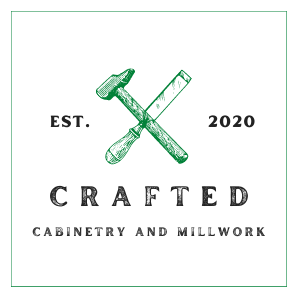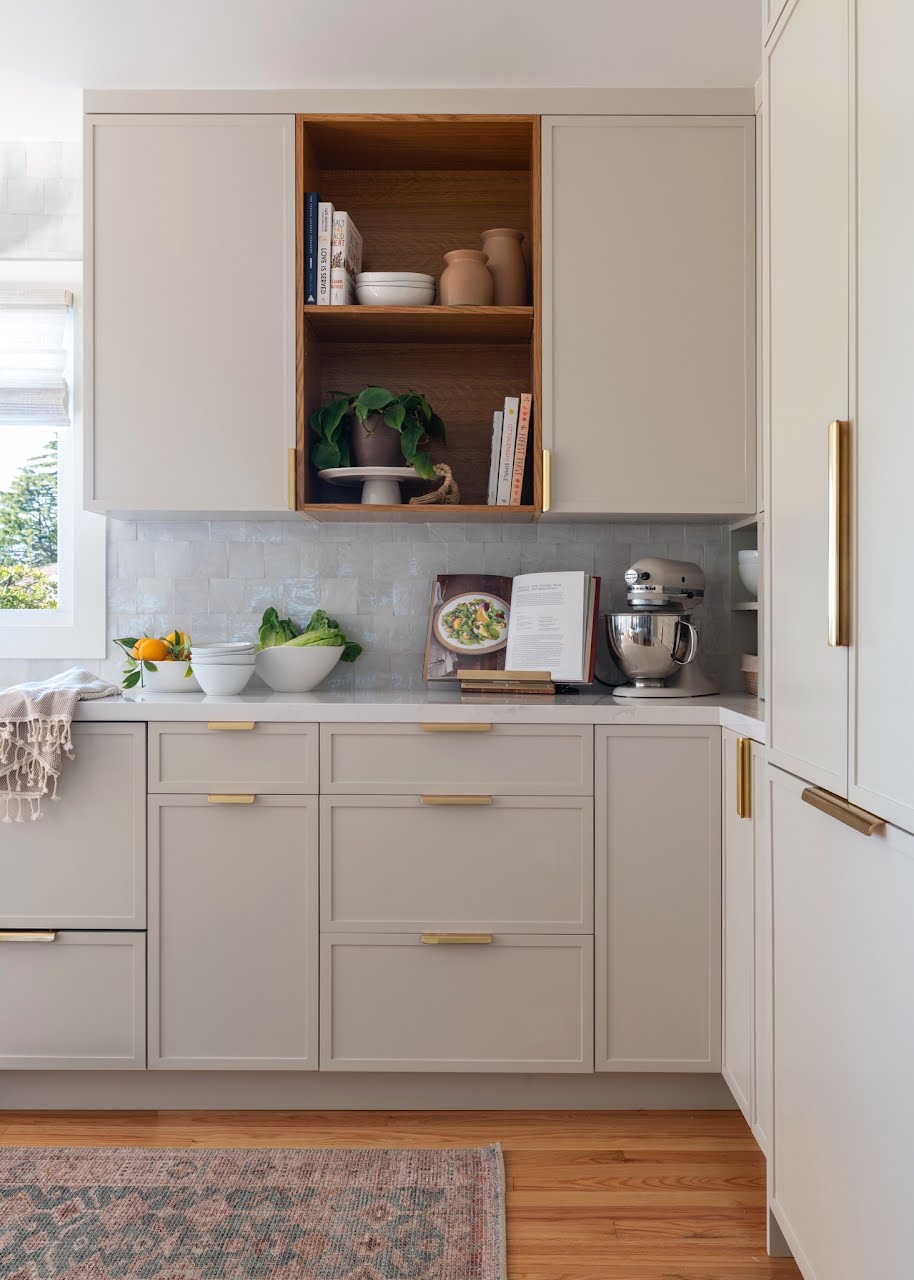Imagine a kitchen that whispers timeless elegance, where warmth and functionality intertwine. This is the magic of the transitional kitchen style, a beautiful blend of traditional and modern elements that’s as inviting as it is sophisticated. The key player in achieving this harmony? Your cabinets!
Let’s embark on a journey to create a transitional kitchen masterpiece using a strategic combination of traditional and modern cabinet styles.
The Art of Balance: Finding Your Transitional Voice
Transitional kitchens are all about achieving a perfect equilibrium. Don’t worry, you don’t need a conductor’s baton – just a clear vision and an understanding of the key elements at play.
- Traditional Touches: Think raised panel doors, intricate details, and warm wood tones that evoke a sense of heritage and craftsmanship.
- Modern Elements: Embrace clean lines, sleek finishes, and pops of color for a touch of contemporary flair.
Cabinetry: The Stage for Your Culinary Symphony
Now, let’s translate these design principles into your cabinet selection. Here’s a breakdown of traditional and modern cabinet styles you can mix and match:
Traditional Stars:
- Shaker Cabinets: The quintessential transitional hero. Shaker doors feature a recessed panel framed by a simple square or rectangular frame. Available in painted finishes or warm wood tones, they offer timeless elegance and versatility.
- Raised Panel Doors: These add a touch of formality with their layered construction. Choose arched or cathedral tops for a more traditional feel.
- Glass-Front Cabinets: Showcase your prized china or collectibles behind elegant glass doors. Consider incorporating mullions (decorative dividers) for added character.
Modern Muses:
- Flat-Panel Cabinets: The epitome of clean lines, these cabinets create a sleek and minimalist aesthetic. Perfect for contemporary kitchens that crave a streamlined look.
- Slab Doors: Take minimalism a step further with slab doors, featuring a completely flat, often handleless surface. Ideal for creating a seamless and modern flow.
- Open Shelving: Embrace a light and airy feel with open shelves that display your favorite cookware or cookbooks. This adds a touch of modern industrialism while keeping essentials readily accessible.
The Perfect Blend: A Recipe for Success
Now comes the exciting part – creating your personalized cabinet symphony! Here are some tips to ensure a harmonious blend:
- Proportion is Key: Aim for a 60/40 split between traditional and modern styles. For instance, use Shaker cabinets for the bulk of your storage and incorporate flat-panel doors on a smaller accent area.
- Finish Finesse: Maintain a cohesive color palette. Consider painting traditional raised panel doors in a modern white or opting for a light stain on Shaker cabinets for a warmer feel.
- Hardware Harmony: Knobs and pulls play a crucial role. Opt for classic cup pulls or knobs on traditional cabinets and sleek, bar pulls or hidden touch latches on modern ones.
Beyond Cabinets: Completing the Transitional Orchestra
While cabinets take center stage, other elements contribute to the overall symphony of your transitional kitchen:
- Countertops: Natural stone like granite or quartz offers a timeless look, while sleek concrete or stainless steel adds a modern touch.
- Backsplash: Subway tiles are a timeless classic, while larger format tiles or mosaic patterns in neutral tones add a contemporary edge.
- Lighting: A blend of recessed lighting and statement pendant lamps provides both functionality and modern flair.
The Final Crescendo: A Kitchen You’ll Love
By strategically combining traditional and modern elements in your cabinets and embracing the tips above, you’ll create a transitional kitchen that’s not only beautiful but also perfectly reflects your unique style. It’ll be a space that welcomes you for morning coffee rituals, inspires culinary creations, and becomes the heart of your home.
Remember, the key is to find a balance that resonates with you. Don’t be afraid to experiment and have fun! So go forth, unleash your inner conductor, and create a transitional kitchen symphony that sings to your soul.

